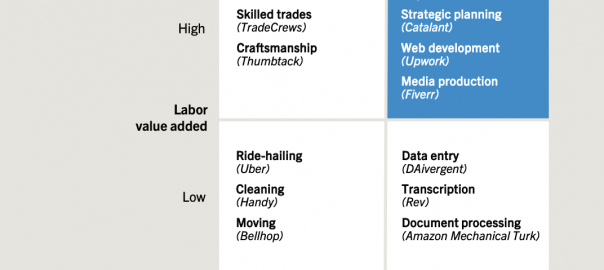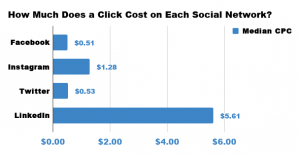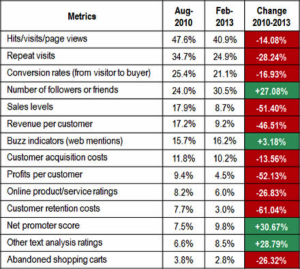As more high-skilled individuals choose freelancing due to the COVID-19 pandemic, big businesses are following suit. A new study by Harvard Business School and Boston Consulting Group (BCG) found that the vast majority of businesses see high-skills freelancers as integral to innovation and speed to market. The study asked senior leaders at 700 large American firms a variety of questions about their plans to be part of the freelance revolution.
A majority (60%) report using major freelance platforms to find high-skills freelancers already, either extensively or moderately. However, almost 90% of businesses say that finding high skill freelancers on major freelancer platforms will be an integral part of their talent strategy going forward.
This comes as more companies are willing to go against the trend of having an employee dedicated only to their company. What used to be considered an employment norm demanded by companies is fading away. According to the survey, 60% of business leaders are increasingly preferring to “rent,” “borrow,” or “share” talent with other companies.
When big businesses need freelancers, the majority turn to major platforms such as Upwork, Fiverr, or other premium talent marketplaces like Virtual Gurus, Magic, or TopTal. Investment in these platforms has grown more than 10-fold, from around $ 180 million in 2009 to $ 1.9 billion in 2019. This is also correlated to the rise of digital freelancing marketplaces, crowdsourcing innovation platforms, and premium talent marketplaces. In 2009, there were approximately 80 companies. By 2019, that number had ballooned to over 330 companies.
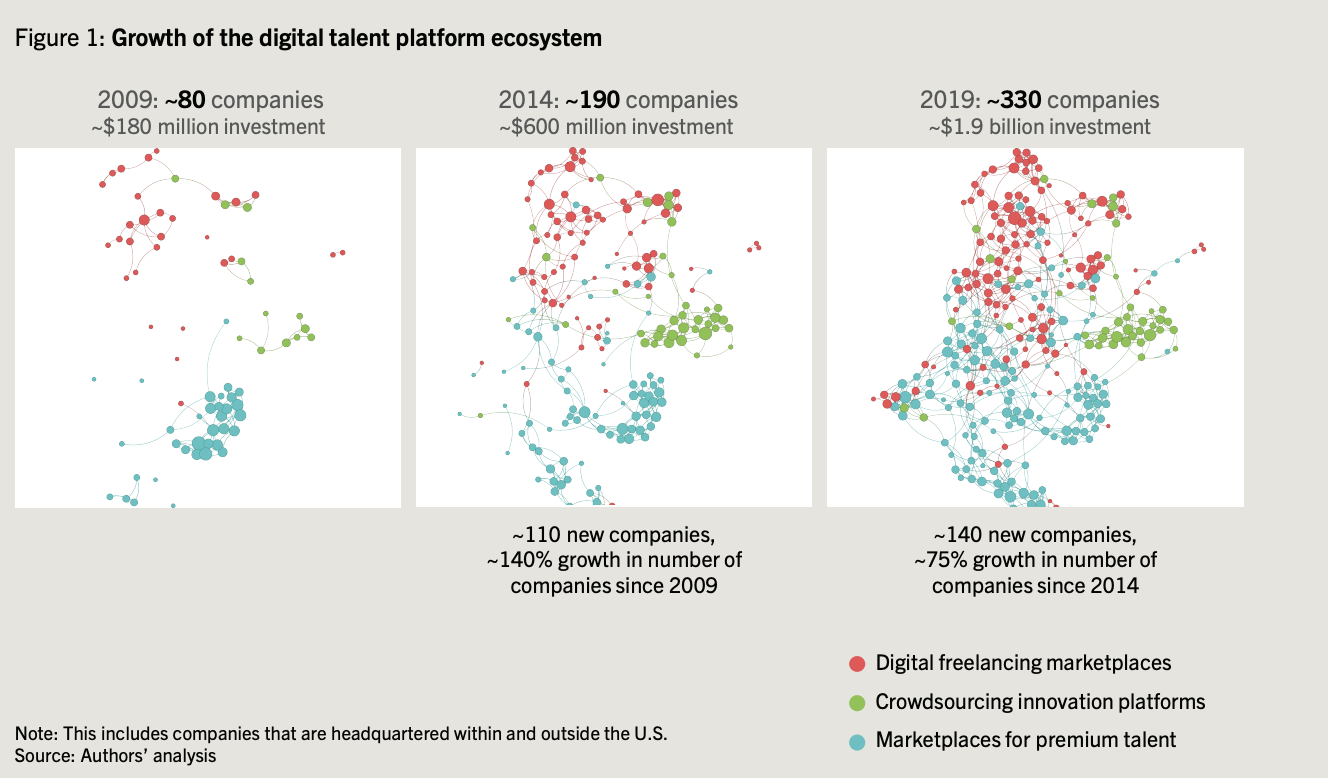 Source: Building The On Demand Workforce study
Source: Building The On Demand Workforce study
The freelancer effect
Companies hire freelancers for convenience and flexibility of labor costs, and it seems the results are positive. A full 40% of businesses said that hiring highly skilled freelancers helped improve speed to market, helped boost productivity, and helped increase innovation for the company.
The platforms themselves are also starting to differentiate. Many of the original players in the market had a generalist “find a freelancer” style. Now, newcomers and original players alike have evolved into a 2×2 matrix of specialization, according to the report. Some platforms focus on cognitive skills while others focus on physical skills. Further, platforms will look to focus on low-value add (but necessary) tasks or high-value add and critical tasks.
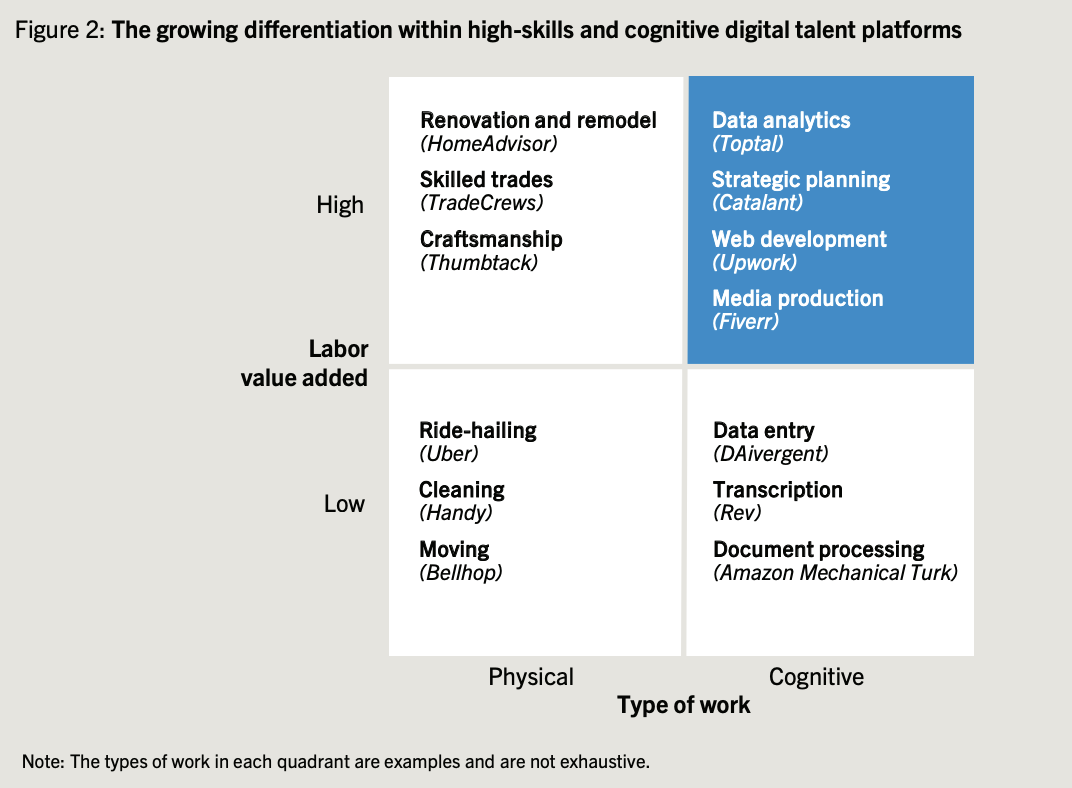 Source: Building The On Demand Workforce study
Source: Building The On Demand Workforce study
Trouble for full time employment?
As more skilled individuals choose freelancing, companies are questioning whether they need a large staff of full-time employees at all. In the survey, 60% of leaders reported that it was “highly” or “somewhat” possible their core future workforce would be much smaller.
“Companies are now moving beyond early experiments,” says the report. “They have learned through these efforts what works as well as what doesn’t. Many now realize that, instead of engaging with platforms as an ad hoc response to an urgent problem, there are far greater benefits to developing an integrated strategy—one that uses these digital technology platforms not just to tap the best talent outside their company but also to get the most out of the latent capabilities of their full-time employees.”
When asked about what forces are shaping the future of work the most, the top two results were stark. On one hand, leaders say that young people have very high expectations of what work should provide. In particular, leaders see that young people want more flexibility and autonomy. On the other hand, rapidly evolving technology is “shortening the relevance of skills,” leading to more frequent upskilling and change in talent needs.
Right now, traditional outsourcing and contracting are still the most used pathways to finding freelancers. However, the growth of new platforms provides a unique opportunity for high-skill freelancers. Specifically, the opportunity to avoid many of the common challenges freelancers face.
Business & Finance Articles on Business 2 Community
(22)
Report Post